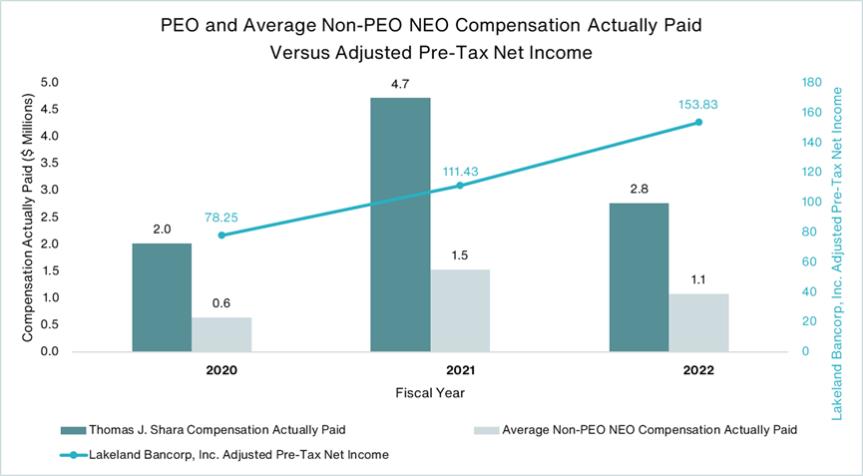
250 OAK RIDGE ROAD
OAK RIDGE, NEW JERSEY 07438
November 27, 2023
Dear Shareholders:
The Annual Meeting of Shareholders of Lakeland Bancorp, Inc. (the “Company” or “Lakeland”) will be held on Thursday, December 28, 2023, at 8:00 a.m., and at any adjournments thereof. Please be advised that the Annual Meeting will be held exclusively as a virtual meeting. The enclosed Notice of Annual Meeting and Proxy Statement describe the formal business to be transacted. During the Annual Meeting we will also report on the operations of Lakeland.
To register for the virtual meeting along with voting your shares:
| • | Visit register.proxypush.com/LBAI on your smartphone, tablet or computer. |
| • | As a shareholder, you will then be required to enter your control number which is located on your proxy card or notice. |
| • | After registering, you will receive a confirmation email and an email approximately one hour prior to the start of the meeting to the email address you provided during registration with a unique link to the virtual meeting. |
The business to be conducted at the Annual Meeting consists of (i) the election of four directors, (ii) an advisory vote on executive compensation (“Say-on-Pay”), (iii) the ratification of the appointment of KPMG LLP as our independent registered public accounting firm for the year ending December 31, 2023, and (iv) the transaction of any other business as may properly come before the Annual Meeting and/or any adjournment or adjournments of the Annual Meeting.
The Board of Directors has determined that the matters to be considered at the Annual Meeting are in the best interest of Lakeland and its stockholders, the Board of Directors unanimously recommends a vote “FOR” the election of the nominated directors; “FOR” an advisory vote approving the “Say-on-Pay” executive compensation resolution, and “FOR” the ratification of the appointment of KPMG LLP as our independent registered public accounting firm for the year ending December 31, 2023.
It is important that your shares be represented at the Annual Meeting. Please take a moment now to cast your vote via the Internet as described on the enclosed proxy card, or alternatively, complete, sign, date and return the proxy card in the postage-paid envelope provided so that your shares will be represented at the Annual Meeting. You may revoke your proxy at any time prior to its exercise.
Both record holders and beneficial owners will be able to register to attend the Lakeland Annual Meeting online, ask questions and vote during the meeting by visiting register.proxypush.com/LBAI and following the instructions. Please have your 11, 12 or 16-digit control number, which can be found on your notice, proxy card or voting instruction form, to register to attend the meeting. See the “Questions & Answers” section of the proxy statement for more information, including technical support information for the virtual Lakeland Annual Meeting.










